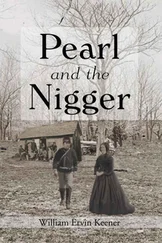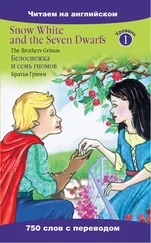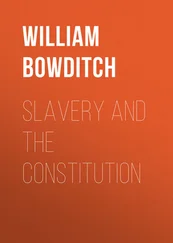William Tenn - Venus and the Seven Sexes
Здесь есть возможность читать онлайн «William Tenn - Venus and the Seven Sexes» весь текст электронной книги совершенно бесплатно (целиком полную версию без сокращений). В некоторых случаях можно слушать аудио, скачать через торрент в формате fb2 и присутствует краткое содержание. Год выпуска: 1949, Издательство: Avon, Жанр: Юмористическая проза, на английском языке. Описание произведения, (предисловие) а так же отзывы посетителей доступны на портале библиотеки ЛибКат.
- Название:Venus and the Seven Sexes
- Автор:
- Издательство:Avon
- Жанр:
- Год:1949
- ISBN:нет данных
- Рейтинг книги:5 / 5. Голосов: 1
-
Избранное:Добавить в избранное
- Отзывы:
-
Ваша оценка:
- 100
- 1
- 2
- 3
- 4
- 5
Venus and the Seven Sexes: краткое содержание, описание и аннотация
Предлагаем к чтению аннотацию, описание, краткое содержание или предисловие (зависит от того, что написал сам автор книги «Venus and the Seven Sexes»). Если вы не нашли необходимую информацию о книге — напишите в комментариях, мы постараемся отыскать её.
Venus and the Seven Sexes — читать онлайн бесплатно полную книгу (весь текст) целиком
Ниже представлен текст книги, разбитый по страницам. Система сохранения места последней прочитанной страницы, позволяет с удобством читать онлайн бесплатно книгу «Venus and the Seven Sexes», без необходимости каждый раз заново искать на чём Вы остановились. Поставьте закладку, и сможете в любой момент перейти на страницу, на которой закончили чтение.
Интервал:
Закладка:
You are but a few days from the egg, but you have already seen both the First Stereo and The Old Switcheroo as many times as conditions permit. You should know that there is a single question common to both of them.
The one essential point of difference between the First Stereo and The Old Switcheroo is that, in the latter, the srob, mlenb, tkan, flin, blap and nzred bolt the matrimonial convention, leaving the guur to pursue them affectionately and finally rescue them from the great spotted snake; while, in the former, the reverse occurs. The loving reunion at the end is the same in both, except that the mlenb, instead of backing into his muddy burrow in the final scene of The Old Switcheroo, slips and falls heavily across it.
After the preliminary exhibitions, the guurr began insisting loudly that the humans could not have expected them—weak and slow-moving as they are—to destroy great spotted snakes. Confronted with the specific evidence, however, they fell back on the claim that the First Stereo depicted the civilized state; and the second, an alternative barbarity.
To this, the other six sexes replied that The Old Switcheroo was not an alternative, but the consummation of our cultural process. Also, as a result of the mores developed with the First Stereo, there was now a disgusting and unprecedented surplus of guurr: what better way to dispose of them than in this extremely selective one? The snakes, when sufficiently irritated by attacking guurr, will swallow them it seems—
The mlenbb, of course, had their own difficulty: whether and how to enter their burrows immediately after the convention. But this was a minor matter.
Some of the new Plookh families attempted to follow the patterns indicated in the First Stereo; others, those in the second. A very few completely barbaric individuals, oblivious to the high destiny of their species, withdrew from the Plookh community and tried to return to the primitive methods of our ancestors; but since few high-variables cared to attach themselves to so atavistic a group, their offspring are being exterminated rapidly—and good riddance.
Most Plookhh remain in two great divisions: the guurr, who believe in the civilizing logic of the First Stereo, and the other sexes who accept only the amendment of The Old Switcheroo. Then, of course, there are a few altruistic nzredd and flinn who agree with the guurr, and vice-versa…
We need the cooperation of all seven sexes for successful reproduction. But how can we achieve that, Plookhh argue, unless we know which is the stereo of civilization? To be so close to liberation from our gustatory bondage, and because of sheer intellectual inadequacy—For the past eleven cycles, not a single matrimonial convention has been celebrated.
As a member of a pre-Shlestertrap family, I take no sides. My convention is past: yours, my diversified nzreddi, lies ahead. I am certain of one thing.
The answer is to be found in neither one stereo nor the other. The answer involves unity of the two: a core of relationship which both must share and which, when discovered, will dissolve their apparent inconsistency. Remember, these stereos are the product of a highly civilized creature.
Where is that core of relationship to be found? In the original stereo? In The Old Switcheroo? Or in that book I never finished— Abridged Regulations of the Interplanetary Cultural Mission, Annotated, with an Appendix of Standard Office Procedure for Solarian Missions?
Humanity has solved such problems, and today flicks stars from its path. We must solve it or die as a race, albeit a civilized race.
We will not solve it—and this is most important—we will not solve this problem by the disgusting, utterly futile expedient to which more and more of our young are daily resorting. I refer to the unmentionable and perverted six-sex families…
Afterword
For what the information may be worth, the original title was “The Old Switcheroo.” The editor purchasing the story changed the title, which, while not to my taste, is the one that has been used by anthologists.
In terms of sheer length, “Venus and the Seven Sexes” held the record for many years among my stories. I wrote it surrounded by thumb-tacked charts showing which sex did what and how and to whom. My brother, Morton, sat in a corner of my study throughout, feverishly working out the chromosome patterns. When I finished the story, we had a small ceremony, and Morton formally witnessed my oath: from that day on, I would avoid anything but human characters and the very simplest plots. Well, time passes and wounds heal. I have broken that oath many times—but never since have I been caught in coils of such intricacy.
The story drew my first memorable fan letter, a lovely and gracious comment from Robert Heinlein. I was a very new, very young science-fiction writer, and getting a tribute from one of the two men whose work had shaped mine (the other was Henry Kuttner) simply overwhelmed me. Even praise from a very famous geneticist didn’t mean as much.
Three further notes: I’m not as fond of the piece as I was years ago (the Shlestertrap passages creak badly and are badly dated) but, as Aldous Huxley remarked in a similar context, the younger writer’s self is entitled to have his own story stand—therefore, no late-date rewrite.
The Venus in the piece is the Venus we knew so little about in 1947. It’s a jungle Venus used by many writers of the time, and it’s one on which this story was then at least imaginable.
Third. I once asked Heinlein if his use of grok in Stranger in a Strange Land had been influenced at all by my use of griggo in “Venus and the Seven Sexes.” He looked startled, then thought about it for a long time. Finally, he shrugged. “It’s possible, very possible,” he said.
Do me something. I like that “very.”
Written 1947 / Published 1949
Интервал:
Закладка:
Похожие книги на «Venus and the Seven Sexes»
Представляем Вашему вниманию похожие книги на «Venus and the Seven Sexes» списком для выбора. Мы отобрали схожую по названию и смыслу литературу в надежде предоставить читателям больше вариантов отыскать новые, интересные, ещё непрочитанные произведения.
Обсуждение, отзывы о книге «Venus and the Seven Sexes» и просто собственные мнения читателей. Оставьте ваши комментарии, напишите, что Вы думаете о произведении, его смысле или главных героях. Укажите что конкретно понравилось, а что нет, и почему Вы так считаете.












